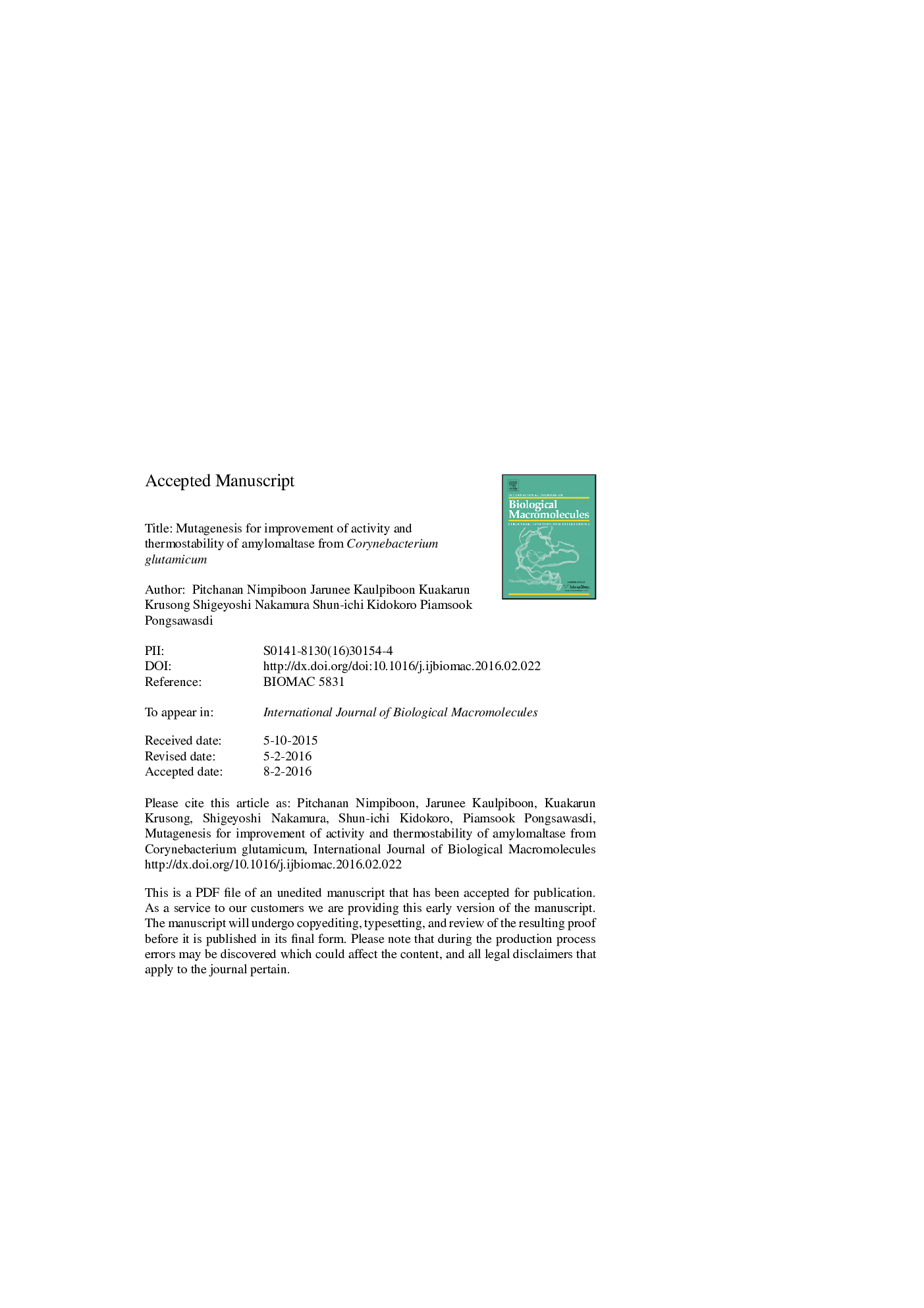| Article ID | Journal | Published Year | Pages | File Type |
|---|---|---|---|---|
| 1985964 | International Journal of Biological Macromolecules | 2016 | 28 Pages |
Abstract
This work aims to improve thermostability of amylomaltase from a mesophilic Corynebacterium glutamicum (CgAM) by random and site-directed mutagenesis. From error prone PCR, a mutated CgAM with higher thermostability at 50 °C compared to the wild-type was selected and sequenced. The result showed that the mutant contains a single mutation of A406V. Site-directed mutagenesis was then performed to construct A406V and A406L. Both mutated CgAMs showed higher intermolecular transglucosylation activity with an upward shift in the optimum temperature and a slight increase in the optimum pH for disproportionation and cyclization reactions. Thermostability of both mutated CgAMs at 35⿿40 °C was significantly increased with a higher peak temperature from DSC spectra when compared to the wild-type. A406V had a greater effect on activity and thermostability than A406L. The catalytic efficiency values kcat/Km of A406V- and A406L-CgAMs were 2.9 and 1.4 times higher than that of the wild-type, respectively, mainly due to a significant increase in kcat. LR-CD product analysis demonstrated that A406V gave higher product yield, especially at longer incubation time and higher temperature, in comparison to the wild-type enzyme.
Keywords
Related Topics
Life Sciences
Biochemistry, Genetics and Molecular Biology
Biochemistry
Authors
Pitchanan Nimpiboon, Jarunee Kaulpiboon, Kuakarun Krusong, Shigeyoshi Nakamura, Shun-ichi Kidokoro, Piamsook Pongsawasdi,
